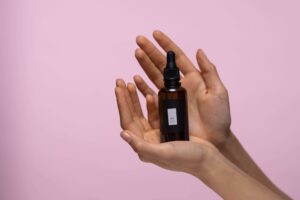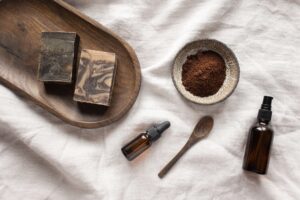Protect Your Skin

In recent years, people have increasingly recognized the significance of using clean and safe skincare ingredients. Although many beauty products promise radiant and youthful skin, some of them contain harmful chemicals that can adversely affect our health and well-being. This blog post aims to empower you to make informed choices and prioritize your skin’s health by highlighting five skincare ingredients to avoid. Additionally, we will provide safer alternatives for a more wholesome beauty routine.
1. SLS and SLES
Cleansers, shampoos, and body washes often use Sodium Lauryl Sulfate (SLS) and Sodium Laureth Sulfate (SLES) as foaming agents. These harsh surfactants can strip your skin of its natural oils, causing dryness, irritation, and potential disruption of the skin’s barrier function. Moreover, these chemicals are harmful to the environment since they are not easily biodegradable.
Safer Alternative: Opt for products that use gentle surfactants like cocamidopropyl betaine, decyl glucoside, or lauryl glucoside. These natural-derived alternatives are mild on the skin, cleanse effectively without depleting moisture, and are eco-friendly.
2. Parabens
Skincare products often contain synthetic preservatives known as parabens to prolong shelf life and prevent bacterial and mold growth. However, several studies have raised concerns about parabens being endocrine disruptors, which might interfere with hormone regulation and potentially be linked to breast cancer.
Safer Alternative: Choose products labeled as “paraben-free” and opt for natural preservatives such as tocopherol (vitamin E), rosemary extract, or grapefruit seed extract. These are effective at preserving skincare products without posing any known health risks.
3. Fragrances
Skincare products commonly include fragrances to enhance their scent. However, many synthetic fragrances can cause skin irritation and trigger allergies in sensitive individuals. Manufacturers are not required to disclose the specific ingredients used in their fragrance blends, making it challenging to identify potential irritants.
Safer Alternative: Look for products labeled as “fragrance-free” or “unscented.” Alternatively, choose products scented with natural essential oils, which not only provide a pleasant aroma but also offer additional skincare benefits.
4. Formaldehyde-Releasing Preservatives
To extend the shelf life of skincare products, some formulations use formaldehyde-releasing preservatives like DMDM hydantoin, diazolidinyl urea, and imidazolidinyl urea. These chemicals can gradually release formaldehyde, a known human carcinogen, and may lead to skin irritation and allergies.
Safer Alternative: Seek out products that utilize alternative preservatives like phenoxyethanol, potassium sorbate, or benzyl alcohol. These ingredients effectively preserve skincare products without releasing formaldehyde or causing harm to the skin.
5. Mineral Oil
Moisturizers, lotions, and certain makeup products often contain mineral oil, a petroleum-derived ingredient. While it can create a temporary barrier on the skin, locking in moisture, it may also clog pores and exacerbate certain skin conditions like acne.
Safer Alternative: Instead of mineral oil, opt for natural oils like jojoba oil, argan oil, or rosehip seed oil. These oils nourish the skin, provide essential fatty acids, and do not clog pores, making them suitable for various skin types.

Conclusion
Prioritizing the health and well-being of your skin should serve as the foundation of your beauty routine. By avoiding harmful skincare ingredients and opting for safer alternatives, you can safeguard your skin’s health while still achieving the desired results. Always read product labels attentively and choose brands that are transparent about their ingredient choices. Embrace a clean and safe skincare regimen, and your skin will thank you with a natural radiance and vibrant glow that comes from nourishing it with the best nature has to offer.




